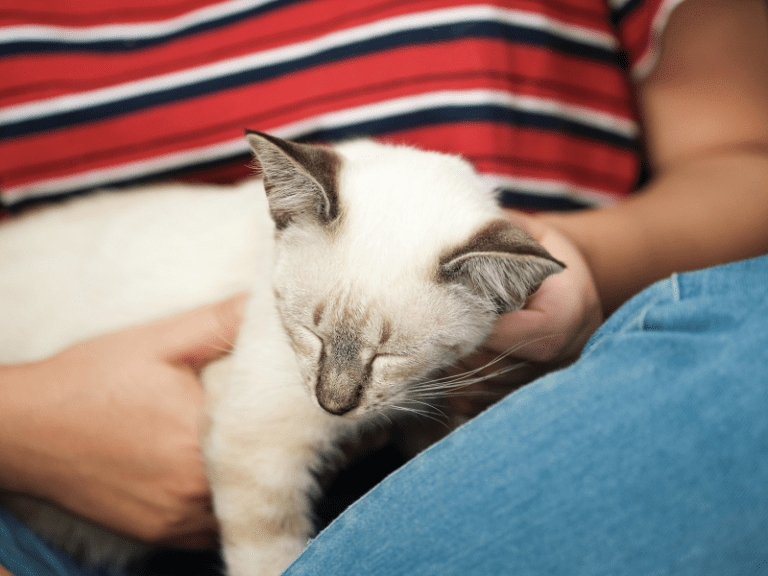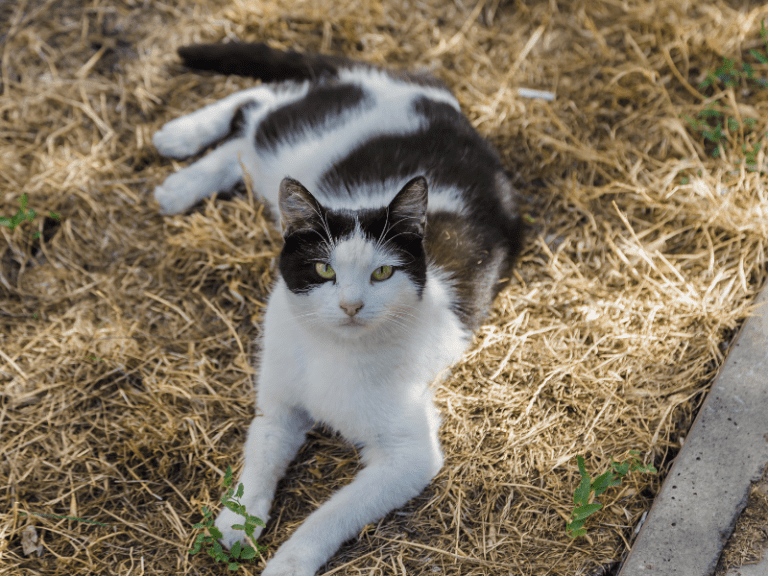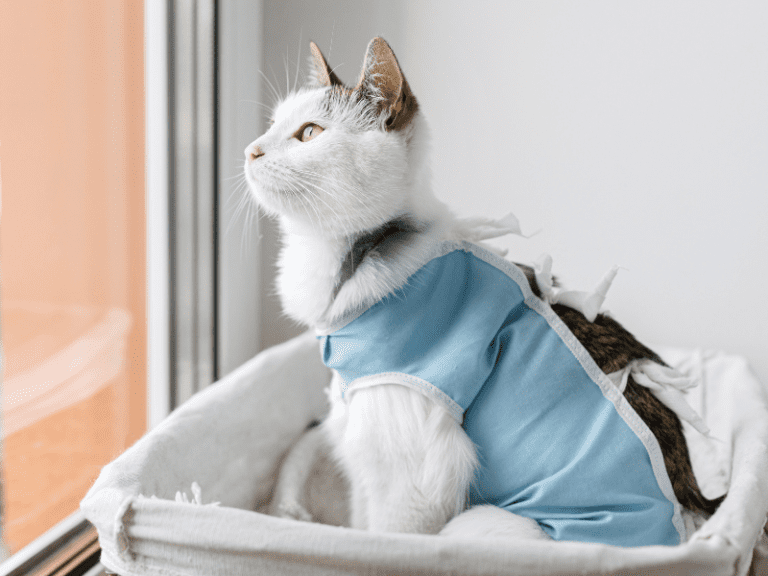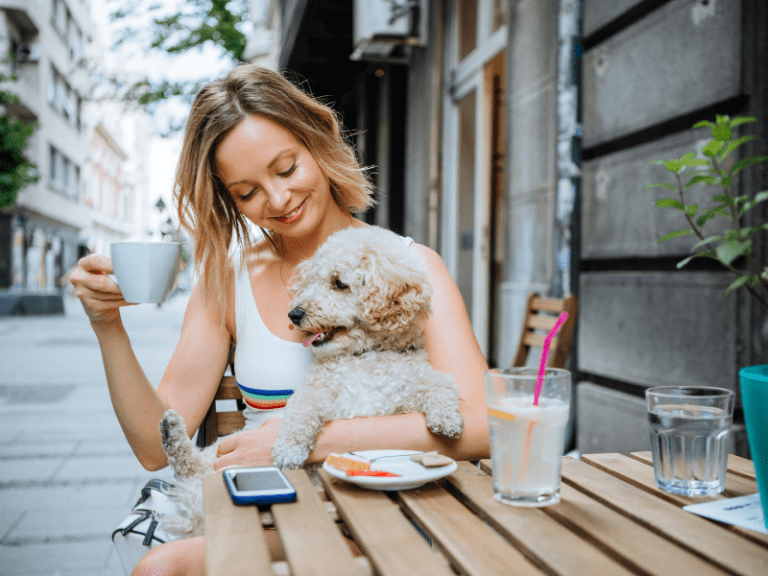Find Out if Dogs Can Be Afraid of the Dark
FULL DISCLOSURE: The links I share in this course ARE my affiliate links. This means I earn a commission, at no extra cost to you. In fact, sometimes you’ll get a discount or free credits just FOR using my link. 🙂
Can Dogs Be Afraid of the Dark?
Have you ever observed your dog being anxious, restless, or afraid? Maybe they whine or curl in a corner?
Does this happen when you turn off the lights?
You may be wondering whether your dog is afraid of the dark. Let me tell you; you are not alone.
There are thousands of other people in the United States, seemingly alone, who are wondering the same thing.
Read on to find out if dogs can be afraid of the dark.
Can Dogs See in the Dark

According to Dr. Mary Burch, dogs can see much better than humans, even in the dark.
Dr. Mary is an award-winning and certified animal behavior expert. She is also the director of the American Kennel Club Family Dog program.
Dog's eyes contain more light-sensitive cells, also called rods, enabling them to see well. Rods are not as sensitive to color as the other type of light-sensitive cell, called cones, but they allow dogs to see well in dim light.
The simple answer is yes, dogs can be afraid of the dark. However, we need to delve deeper to understand why this would happen.
Health Issues
Dogs can be afraid of the dark. This is especially true if they have a medical condition that makes them light-sensitive.
There is no single documented evidence pointing out that a dog suffering from a specific health issue is prone to being afraid of the dark. However, dogs can suffer from several health issues that make them queasy and uneasy much of the time. Turning off the light amplifies this uneasiness.
Two of these conditions could be glaucoma or cataracts. The conditions they may not see well in low light, making them uncomfortable in the dark.
Rescued Dogs May Be At More Risk

Rescued dogs can be more prone to be afraid of the dark. Rescued dogs may have been through difficult times, which could make them fearful of the dark.
There is a likelihood that a traumatic experience may have occurred at night when they were less alert, which led them to be afraid.
If this did happen, they could associate darkness with trauma, which will make them anxious and uneasy once the lights are switched off.
Other rescue dogs may have spent much time alone in dark sheds. This would lead them to associate the dark with being left alone and could create anxiety.
If your dog is afraid of the dark, you may hear them whining in low tones when the lights are switched off. When the daw comes, they are eager to get out and enjoy the day.
A Dog's History
Your dog's history is an important part of who they are. It can help to identify what their trauma might have been so that you know how best to approach them and understand why certain behaviors happen.
For instance, if the dog was separated from their family early, they may feel lonely. They may want to be close to people or other canine family members.
To help with this, you may decide to get another dog for companionship or allow it to sleep in the house close to people.
Stress and Anxiety

Dogs and humans are alike in that they both experience stress, depression, and separation anxiety.
Dogs are social animals that constantly crave the attention of their owners and other animals. Some breeds of dogs crave this attention more than others.
German Shepherds and Poodles
For instance, a poodle has a higher chance of experiencing anxiety compared to a German Shepherd. In contrast, the German Shepherd has a more significant opportunity to experience stress if they do not have extensive exercise.
A poodle is a friendly dog that makes excellent family pets. They are known for their warm, intelligent nature. German Shepherds, on the other hand, are working dogs.
They are used in law enforcement and the military for their courage and loyalty. They are popular family pets, but their guarding instincts can make them more reserved around strangers.
Anxiety
When dogs experience anxiety, it can manifest in several ways. They may become destructive. They may even start nipping at people and objects. They may also become more clumsy than usual.
During the night when there is limited light and movement, their anxiety may cause them to become afraid.
If you think your dog is suffering from anxiety, it is important to talk to your veterinarian. They can help you identify the root cause of the problem and develop a plan to address it.
Attention
Your dog needs attention. Some dogs want it more than others; however, they all need attention. You need to establish command and find time daily to engage them or take them out for a walk.
This might help alleviate the stress, depression, and anxiety they may feel when darkness creeps in.
Ways to Help if Your Dog is Afraid of the Dark

It is hard on everyone when your dog companion is stressed. You never know how they will react to different situations. If you can find ways to alleviate this anxiety, then both you and your dog will feel better.
The following are some ways to help your dog overcome their fear of the dark.
Leave a Light On
A simple cure may be leaving a light on for them. Or even put a nightlight next to where they sleep if the overhead light is too bright for you.
Your dog will feel safer and more in control of their environment if they can see what is happening around them.
Keep Your Pup Close
Some dogs are very sensitive to social interactions. This can especially be the case when they are puppies. The best way to get rid of this anxiety is to keep them close to you.
You could put a mat in your bedroom next to your bed. Your dog will feel safer knowing that you are close to them.
There are a lot of benefits to having a mat in your bedroom, especially if you have a dog. For one thing, it gives your dog a designated space to sleep close to you. Knowing that you are nearby can help them feel safer and more secure.
Additionally, it can protect your floor from dirt and hair and keep your dog from sliding around on perhaps a hard surface.
Plus, it is more comfortable for them to sleep on a soft, cushioned mat.
Try Calming Products
There are quite a few products that will help keep your dog calm. However, before trying amy product consult with your veterinarian. They can tell you which ones would be more beneficial for your dog.
The products include sprays and shampoos containing calming ingredients such as lavender or chamomiles, beds, and toys designed to reduce stress.
Click on these links for some of the best products on the market for anxiety. (These are my affiliate links, meaning a small portion of the sale is returned to me. This does not change the cost for you, and in some instances, you may even receive the product at a discount).
Bedtime Routine

Dogs are creatures of habit, and their instinct is to sleep when it is dark outside.
However, some dogs may become anxious or fearful when the sun goes down. If your dog is afraid of the dark, you can do a few things to help ease their anxiety.
First, try to stick to a consistent bedtime routine. This will help your dog know when to wind down for the night.
Second, schedule some playtime before bedtime. This will help your dog burn off excess energy and hopefully make them sleepy.
Finally, make sure to give your dog plenty of love and attention before bed. A little extra TLC can go a long way in making your furry friend feel safe and loved.
You can help your dog overcome their fear of the dark with patience and understanding.
Consult an Animal Behaviorist

If you are like most dog owners, your dog is a cherished member of the family. So when something seems wrong, it is natural to want to find out what is going on as quickly as possible.
However, it can be difficult to diagnose your dog's condition or even figure out why they have anxiety alone. A dog cannot tell us precisely what is wrong, and many symptoms can indicate a variety of different conditions.
Animal behaviorists can identify the triggers making your dog afraid of the dark and help you work out a plan that will be beneficial for the dog.
Fears and Phobias
Many phobias and fears dogs face can be treated with proper training, attention, and/or medication.
Proper training is essential in helping your dog feel comfortable and confident in new situations.
Providing plenty of attention and affection is also essential, as this can help reduce stress levels.
In some cases, medication may also be necessary.
If you suspect your dog is afraid of the dark due to a fear or a phobia, talk with your animal behaviorist about the best course of treatment. They can individualize a plan for you and your dog that will help.
With the proper care and support, most dogs can overcome their phobias and enjoy a happy, healthy life.







